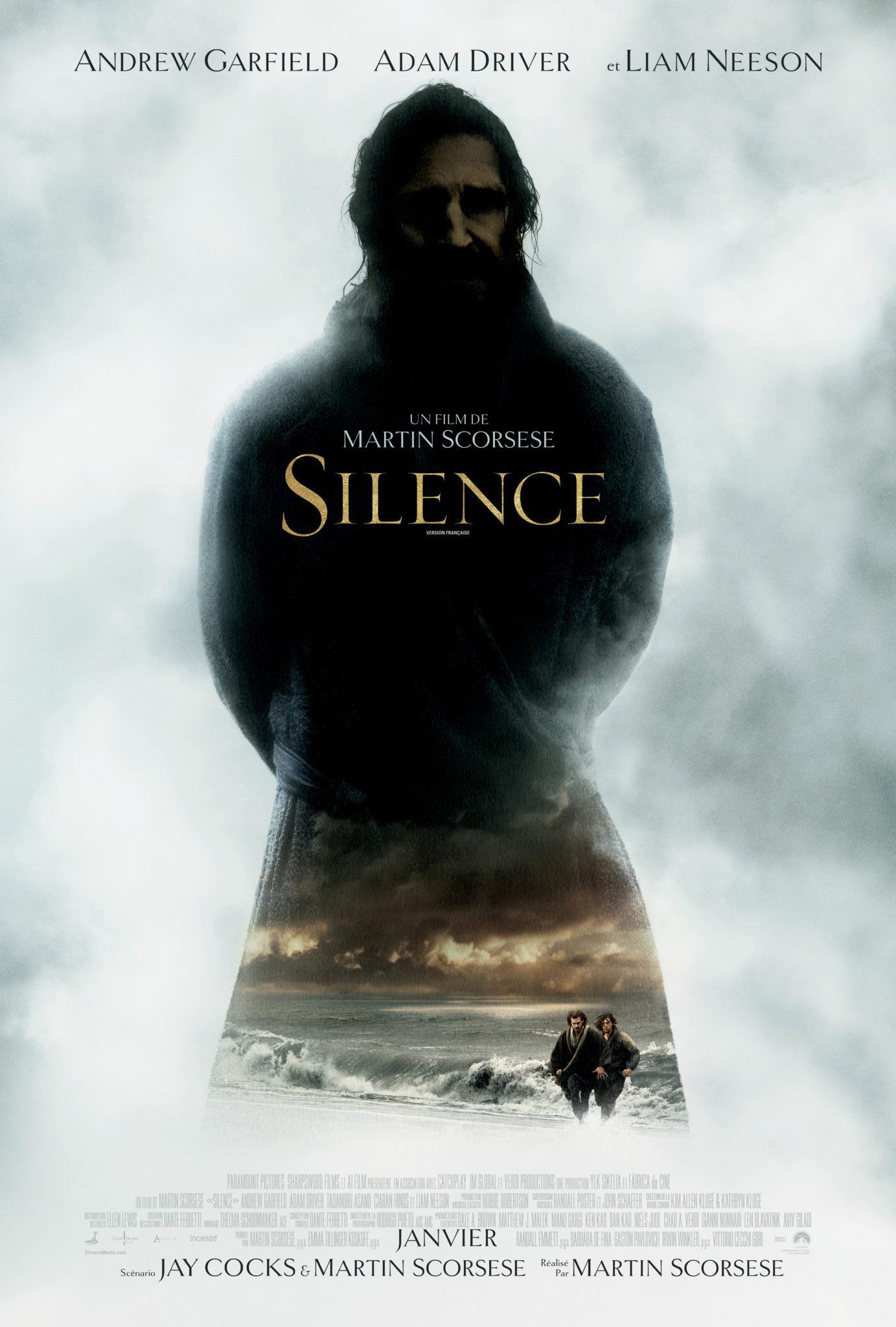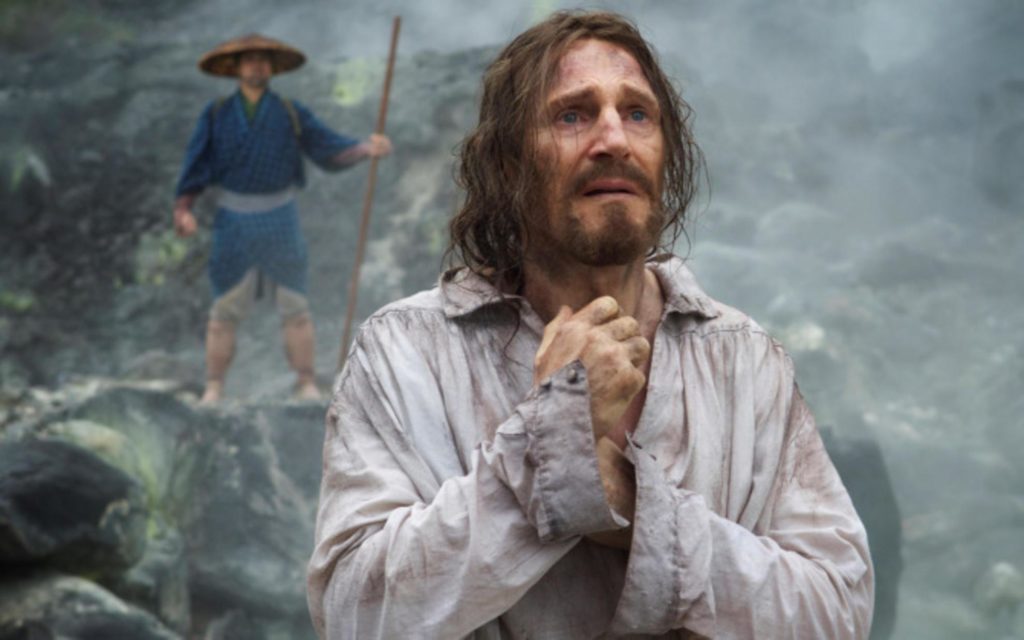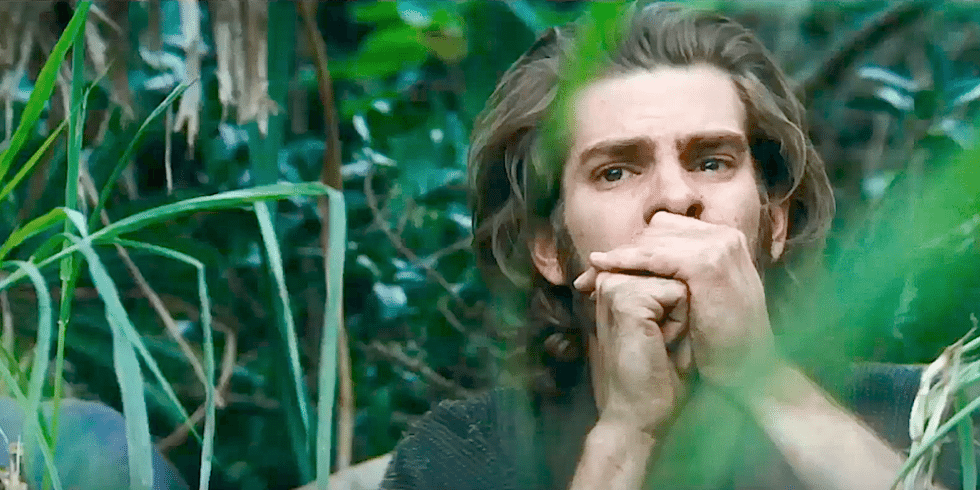?Where is the place for a weak man in a world like this??
Tertullian, a very early Christian writer noted that ?the blood of the martyrs is the seed of the church.? There have been times when religious persecution has been extreme. In some places it still is. Martin Scorsese?s film Silence is the story of the persecution of Christians in 17th Century Japan. While it may seem to be the story of heroic faithfulness, it can also be seen as questioning the value of martyrdom.
When word arrives in Portugal of the apostasy of Father Ferriera (Liam Neesom), a Jesuit missionary to Japan, two young priests he has mentored, Fathers Rodrigues (Andrew Garfield) and Garupe (Adam Driver) feel called to find out the truth. They cannot believe that a man as faithful as Ferriera would deny Christ. So they travel to Japan where they encounter villages of secret Christians who welcome them and hunger for the sacraments that the priests provide. But in time the authorities learn of the presence of the priests. Persecution comes, not so much to the priests as to the Japanese people. They are commanded to step on an image of Jesus or to spit on a crucifix. Those who refuse are tortured and killed.
But the authorities really want the priests to deny their faith because that will quickly kill Christianity?s spread. But they have learned that martyrdom of the priests only strengthens the church. So the priests must endure seeing others being tortured and killed because of the priests? failure to submit. For Fr. Rodrigues especially, this becomes a time in which faith and doubt intertwine and evolve. He quickly comes to believe that for the people to ?trample? on the image is acceptable to save their lives?even though he would not do so to save their lives. He ponders about God as he sees the people suffering horrifically. He prays, but wonders if his prayers are heard. The worst part for him is God?s silence in the face of such suffering.
The film?s 2:41 running time is a clue to the depth with which Scorsese wants to treat the issues involved. One of the key issues is what does it mean to deny one?s faith? Is it possible to deny, yet still be faithful? There is even a scene in which we may wonder if apostasy might even be done as an act of faith. Early the two priests think of suffering and persecution as sharing in the suffering of Christ. Yet as the film progresses, that becomes less evident.
And what of those who have denied? Can they return? The priests recruited a Japanese man named Kichijiro to serve as a guide when they arrive. It turns out that he was the only one from his family to deny his faith. He saw them all executed for their faith. His guilt is staggering. When the priests come and offer absolution, he is restored to the faith. But he is tested again and again?each time failing and each time seeking forgiveness. At the same time Rodrigues suffers with his own doubts in the face of God?s silence and inaction. He continues to pray, and at times his faith even rallies and provides strength, but we may wonder which of the two, Rodrigues or Kichijiro, has a better understanding of God?s grace.
There are times in the film that viewers may consider the act of apostasy not so much denial of Christ as an act of faith. At one point Rodrigues surmises that if Christ were present, he would submit to apostasy to prevent the torture of others. Those who face torture and death in the film perceive that their faithfulness is required if they are to be saved. (That is, after all, the central message of Revelation.) The priests endure their own inner torture as they see the Japanese Christians being persecuted when they have the ability to stop it by denying.
And then there is Kichijiro, who may have the deepest faith in the movie. Unlike the priests who must struggle with doubts, Kichijiro fully believes that God is gracious. His acts of apostasy grow out of his fear of torture and death. Yet he keeps returning seeking forgiveness and restoration.
I went into the film with my own views about martyrdom. It certainly has had a prominent place in the history of Christianity. The Book of Revelation is a call to be faithful even to death in the face of persecution. We celebrate Christian martyrs from the early church?and even in more recent times. Yet, is martyrdom in itself a value that should be promoted? In this film we may see heroic Christians willingly going to their deaths. But we also may see those deaths as a tragic waste of life. Did their deaths serve any purpose that advanced the Gospel? Did these deaths serve the same purpose that Tertullian refers to for the ancient church? Or would those involved have better served their faith by formally denouncing Christ, yet living by his teachings? (Than answer of the author of Revelation to that question would be a very loud ?no?.) Most films that deal with martyrs depict heroism as opposed to shame. In Silence we may question those values.
The film also considers the appropriateness of missionary evangelism. When Rodrigues is arrested and speaks with Inoue, the samurai inquisitor (Issei Ogata), the discussion focuses on how Christianity is not a proper religion for Japan. It can even be considered dangerous. His arguments were not all that different than those of the Roman Empire during Christianity?s early spread. Inoue is willing to accept that Christianity may be a good religion for Europeans, just not for Japan, which has its own religions already. Rodrigues counters that he believes Christianity is based in Truth, which must be the same for everyone. When there are competing ideas of truth, should we set up walls (as the Japanese did) to prevent new religions from taking root? Are many Americans? attitudes towards Islam qualitatively different than Inoue?s view of Christianity? How do we respond to claims of truth that may call our own accepted truths into question?







